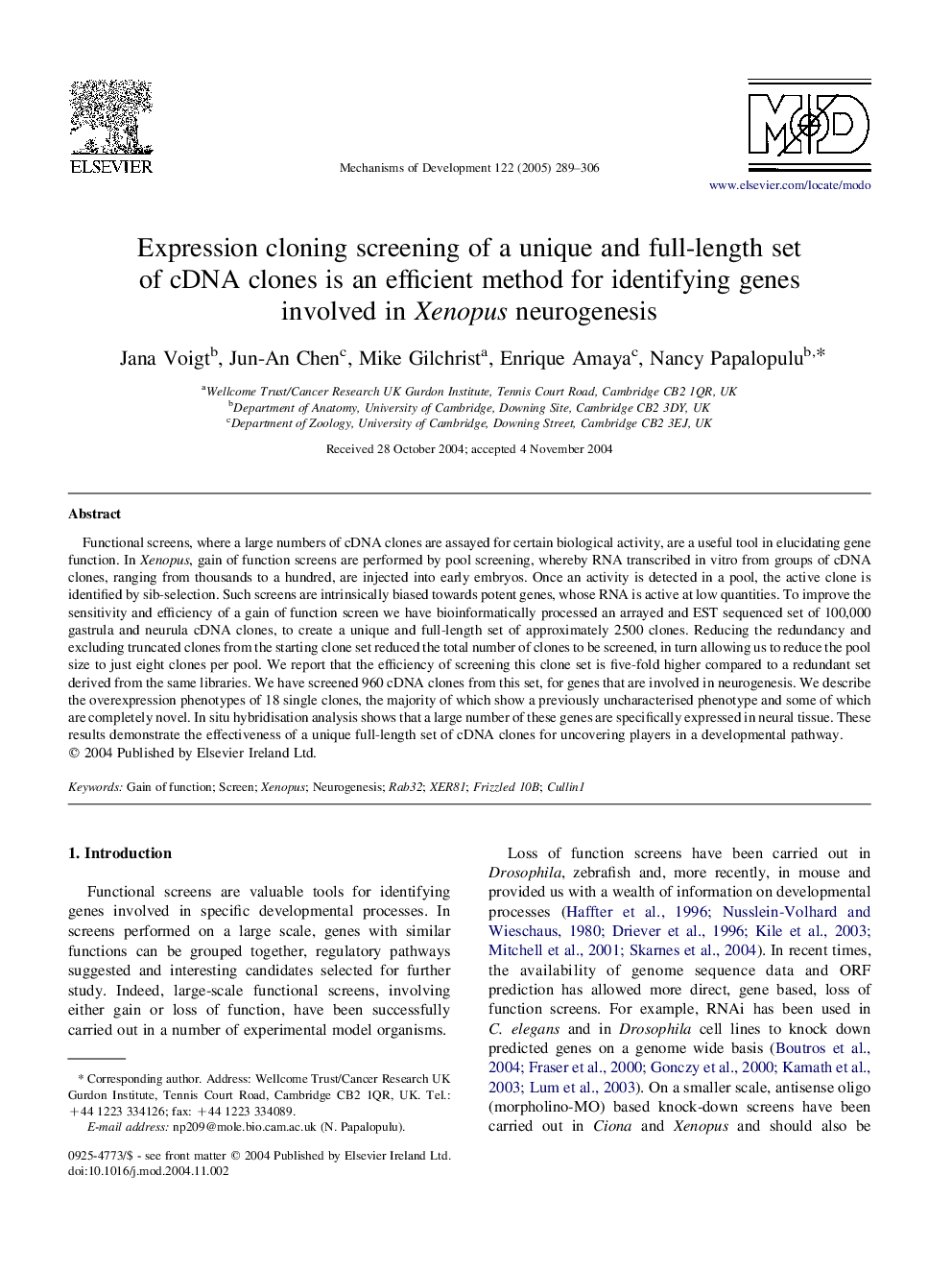| Article ID | Journal | Published Year | Pages | File Type |
|---|---|---|---|---|
| 9913680 | Mechanisms of Development | 2005 | 18 Pages |
Abstract
Functional screens, where a large numbers of cDNA clones are assayed for certain biological activity, are a useful tool in elucidating gene function. In Xenopus, gain of function screens are performed by pool screening, whereby RNA transcribed in vitro from groups of cDNA clones, ranging from thousands to a hundred, are injected into early embryos. Once an activity is detected in a pool, the active clone is identified by sib-selection. Such screens are intrinsically biased towards potent genes, whose RNA is active at low quantities. To improve the sensitivity and efficiency of a gain of function screen we have bioinformatically processed an arrayed and EST sequenced set of 100,000 gastrula and neurula cDNA clones, to create a unique and full-length set of approximately 2500 clones. Reducing the redundancy and excluding truncated clones from the starting clone set reduced the total number of clones to be screened, in turn allowing us to reduce the pool size to just eight clones per pool. We report that the efficiency of screening this clone set is five-fold higher compared to a redundant set derived from the same libraries. We have screened 960 cDNA clones from this set, for genes that are involved in neurogenesis. We describe the overexpression phenotypes of 18 single clones, the majority of which show a previously uncharacterised phenotype and some of which are completely novel. In situ hybridisation analysis shows that a large number of these genes are specifically expressed in neural tissue. These results demonstrate the effectiveness of a unique full-length set of cDNA clones for uncovering players in a developmental pathway.
Related Topics
Life Sciences
Biochemistry, Genetics and Molecular Biology
Cell Biology
Authors
Jana Voigt, Jun-An Chen, Mike Gilchrist, Enrique Amaya, Nancy Papalopulu,
